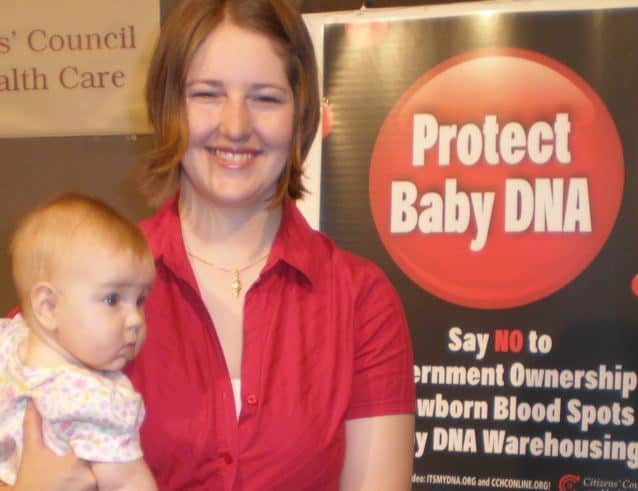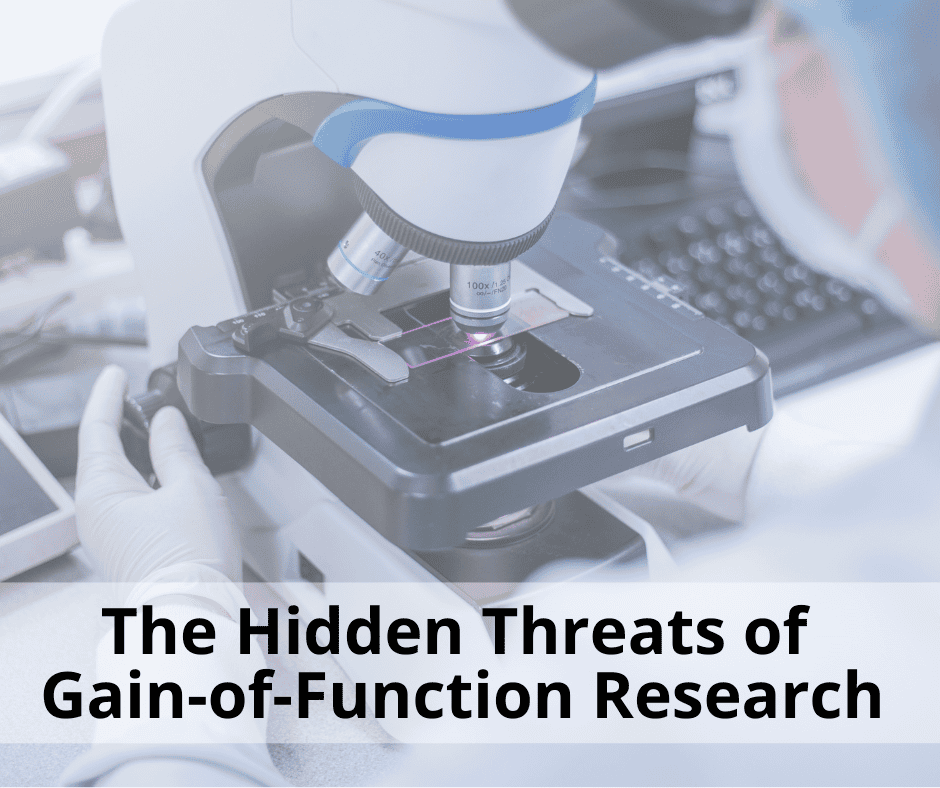After the newborn genetic testing is complete, all State health departments save and store the residual dried blood spots, some for only 3 months, some indefinitely. At least ten States store newborn dried blood spots indefinitely (CA, FL, IA, ME, MD, MI, MN, NC, ND, VT). Another seven store them for more than 18 years (MA, WA, IN, NJ, RI, TX, NY). The 2008 Newborn Screening Saves Lives Act may encourage all states to hold on to baby DNA long-term.
Parents are also not told about the storage of their baby’s blood spots (DNA). Ten years ago, according to a National Bioethics Advisory Committee report, 13.5 million blood spots were stored nationwide. Aaron Goldenberg, Ph.D, MPH, from Case Western Reserve University, presenting at a newborn screening forum (“Envisioning the Future of Newborn Screening” December 7-8, 2009 conference), said it is known that this number was a “pretty big underestimate.”
This nationwide collection of newborn DNA has been called a “national treasure” by Sharon Terry of the Genetic Alliance and referred to at the December 2009 forum as a “scientific goldmine” by Amy Gaviglio, a genetic counselor at the Minnesota Department of Health.
Increasingly, state health departments have begun to store newborn blood spots (Baby DNA) and newborn genetic test results and claim them as state government property. The test results are placed in a state laboratory database (genetic registry) and the blood spots are warehoused in the state health department or elsewhere by contract. For instance, the 4.2 million blood spots of Texas newborns were being stored at Texas A&M.
In Minnesota, there are more than 1.5 million children listed with their genetic test results in the state’s database. There are over 900,000 Minnesota children whose DNA is warehoused by the State with at least 70,000 children added per year.
The primary purpose for long-term storage of baby DNA and newborn genetic test results is research.
Most research is conducted without the knowledge or consent of the baby’s parents. However, parents are now beginning to discover this research. As a result of this discovery and several 2009 lawsuits, researchers have begun to study the public’s response to government storage and use of newborn DNA without parent consent.









Saving Grace, Good News, and Medicare’s 59th Anniversary